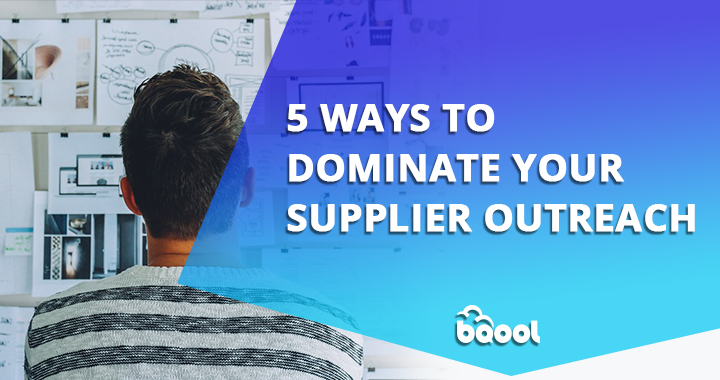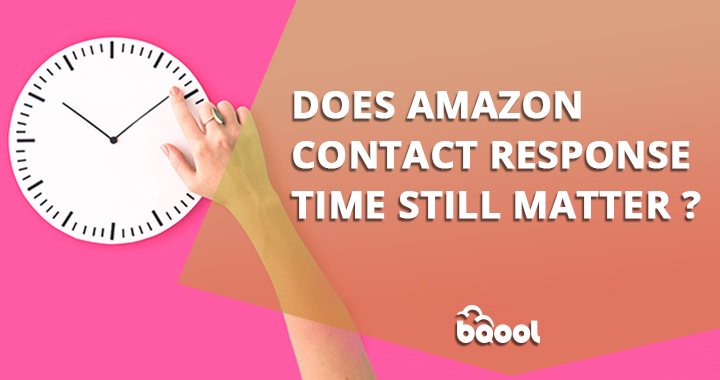5 Ways to Dominate Amazon Wholesale Supplier Outreach

“I have found the secret KEY to success… All I need to do now is… To find the DOOR…”
― Nelson M. Lubao
Every business has an “outreach” key that opens the door profitable scaling. Most of the time growth is just a matter of turning this key (ofttimes over and over).
Marketers have clients.
Doctors have patients.
Property managers have tenants.
When it comes to Amazon selling, the game is a little different. While the customer is ultimately at the end of the line (like most traditional businesses) the most difficult challenge eCommerce business owners face is building out a reliable, profitable supplier network. After all, without products, there are no customers.
Finding wholesale suppliers takes an enormous amount of time and legwork. Sometimes it’s a challenge to get an application, let alone opening an account making wholesale purchases. This is especially true if don’t have a brick and mortar space.
This being said, there are certain approaches small and medium-sized Amazon businesses can take to dominate supplier outreach. We’ve documented five guidelines (from the mouths of suppliers themselves!) that will help you get your foot in the door.
1. Do Your Homework
Never make any type of contact without a game plan. You should know:
- Exactly what products (or at a minimum, product types) you’re looking for (don’t know what to sell on Amazon? A product research tool can efficiently find the right products for you.)
- Background knowledge of the company.
- A list of questions you need answers to
- Information about your company (niche, tax ID, purchase volume, etc)
Generally, the first person you’ll talk to about opening an account is a sales rep. It’s important you come across as knowledgeable as possible since they’re the ones with the power to move you to the next step. Think of it as closing a sales deal — you may only get one shot, so you need to do everything in your power to prove you are (or will be) a legitimate player in the eCommerce world.
2. Don’t say the word Amazon (at least, at first)
Many companies have strict restrictions on working with Amazon sellers. We never suggest lying about your Amazon store (this will shoot you in the foot later) but there’s no need to bring it up unless your supplier specifically asks.
Why do suppliers have it out for Amazon sellers? There are a couple of reasons. Some suppliers sell on Amazon themselves and bringing in competitors will only hurt their sales numbers. The more likely reason, however, is that lots of brands (especially large ones) rely on a tight supply chain for brand management.
Think of it this way: If Nike were sold at Walmart, customers wouldn’t visit the actual Nike store and get the branded “experience.” It would also cheapen the brand since Walmart is viewed as a low-price emporium.
3. Use value propositions
As a seller, how can YOU help a brand?
A value proposition is a benefit you can offer to a supplier if they chose to work with you.
Maybe you’re a PPC pro and can drive sales through advertising.
Maybe you can optimize listings.
Maybe you can improve the item’s photographs
Maybe you can a product they are trying to get rid of.
Maybe you can buy a huge volume of product.
No matter what your talent set, there is some way you can provide value. Each time you talk to, email, or message a supplier make sure this value proposition is clear. The more you can bring to the table, the more likely a supplier is to work with you.
4. Use tools to make your time more productive
You could spend all day, every day searching out suppliers. There are more than 300,000 wholesale companies in the U.S. alone. That’s practically a lifetime-worth of applications, phone calls, and research!
Let’s be real: nobody has time for that.
Luckily, there are some powerful software solutions that can help you narrow down large lists of suppliers to those who are most likely to work with you
- ProfitGuru has a powerful supplier database that allows you to narrow down more than 5,000 wholesale companies by category, location, and keywords.
- Import Genius provides access to shipping manifests for all shipments entering the United States. If your competitor is sourcing outside the U.S. you’ll be able to pinpoint exactly where their product is coming from.
Collectively, these programs can cut hours out of your outreach time, allowing you to spend more time hunting down profitable products.
5. Ask questions (and don’t be afraid of the response)
Quite frankly, your business is not going to be a good fit for every wholesale supplier (and vice versa) Get used to asking a lot of questions up front to figure out if the relationship will be beneficial or not. There are a few specific topics you’ll want to broach as soon as possible:
- Shipping logistics
- Net30
- Return policies
- Discounts
Be respectful and polite, but don’t be afraid to push a little. It’s perfectly in-bounds to say something like, “I’m looking for a long-term supplier relationship for item X, but can you provide it at 10% discount in order for it to be feasible for my business?” The worst thing that can happen is that they say no. Clarity will never hurt.
Keeping these tips in mind when communicating with suppliers will allow you to be efficient and grow profitably. With a little legwork and the right suppliers, it won’t take long to claim your corner of the Amazon empire.
Author Bio
Alexandria Evensen is a 7-figure Amazon seller, content marketing guru and tech aficionado who specializes in launching international products. She loves every part of the project management process from idea development to launch.








